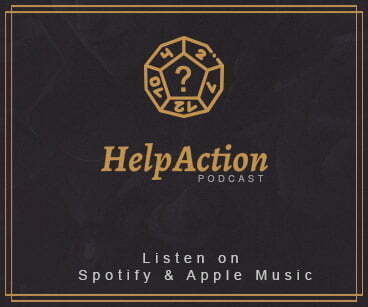Wizards of the Coast has announced that they will be starting to release playtest material for the next phase of Dungeons & Dragons which they have dubbed One D&D. This new phase is said to be the evolution of D&D that they are claiming is not a new system but keep saying things like “it will be completely backward compatible with 5e”. They seem to be heavily pushing the fact that everything they are doing will be compatible with 5th edition but have already stated that the playtesting material, which is slated to be released monthly until 2024, will be used to create new core books like the Player’s Handbook and Dungeon Master’s Guide. They are being pretty vague about what they are aiming for with these updates. Is it going to be a new system that is backward compatible with 5e? Is it just going to be a revised 5th edition? Or is it going to be D&D 5.5? One thing that’s for sure is there there are big waves of change heading to the world of Dungeons & Dragons. Let’s just hope they can stay afloat.
On August 18th, 2022, WotC released the first Unearthed Arcana document containing the playtest material for One D&D, Character Origins. This UA showcases the changes they intend to make to character creation as well as highlighting a handful of rule changes they plan on implementing into whatever this new ‘phase’ they are gearing up for is going to be. This content is presented in the style of 5th edition but comes with some very bold changes that back-pedal on the changes they have made in books like Tasha’s Guide to Everything and even the recently released Mordenkainen Presents: Monsters of the Multiverse. WotC has made a lot of lane changes over the last few years and I think it’s clear they are even desperate to figure out what the future of this game will be, even with a jam-packed schedule with releases over the next year. But, while they try to figure all of that out, let’s look into this first batch of changes they introduce to us.

Table of Contents
What’s In It?
The Character Origins UA focuses on what you need to know to determine the details of your character, other than its class, using the new rules they are playtesting. The document focuses on five major points; character races, character backgrounds, languages, feats, and rule changes. In this article, we’ll walk through the changes introduced for each of these major points and how they are used to create a new character. All of these things are typical of building a character in 5e, but once you see the changes they’ve made you will notice how very different the two processes are.
Character Races
Changing the way character races work in Dungeons & Dragons is something that Wizards of the Coast has been experimenting with in multiple releases over the last few years. In this new playtest content, it’s the first thing they address and it comes with some big changes for how your race works, including getting rid of ability score improvements. These are the following traits that now make up a character’s race as well as what they mean according to the new document:
- Creature Type: Every character and monster in the game has a Creature Type.
- Size: A character’s Size determines the amount of space the character occupies, as explained in the 2014 Player’s Handbook.
- Speed: Speed fuels a character’s movement, as the 2014 Player’s Handbook explains.
- Life Span: This life span is an average for a member of the Race—assuming the dangers of adventure don’t shorten that span!
- Special Traits: Each Race provides special traits—a collection of abilities that characters gain from their ancestors.
In addition to addressing the changes to the traits that make up a character race, they also provide the updated details for each race from the original Player’s Handbook and also introduce one new race of humanoids born from a celestial lineage, the Ardlings. Below I will bullet point the major important changes made to each one, and I’ll go over what traits make up the Ardlings.

Human
- They can be either Medium or Small-sized creatures.
- Humans have an ability called Resourceful which gives them Inspiration every time they finish a long rest.
- Now every Human character gets to choose a feat when you choose this race. This is in addition to every character race now starting with a 1st-level feat.

Ardling
- Ardlings are humanoids born of a celestial legacy that have the heads of animals associated with the legacy they are born from. The legacies are associated with an alignment and consist of the Exalted (Chaotic Good), Heavenly (Lawful Good), and Idyllic (Neutral Good) legacies.
- They can be either Medium or Small-sized creatures.
- Each legacy grants a different list of spells the character knows and can cast for free once. This trait resets after a long rest but the spells can be cast with normal spell slots after the first free use.
- Exalted: thaumaturgy, divine favor, lesser restoration
- Heavenly: light, cure wounds, zone of truth
- Idyllic: guidance, healing word, animal messenger
- As a bonus action these characters can sprout spectral wings that allow them to fly a distance equal to their movement speed, but if they end their turn in the air they fall to the ground.

Dragonborn
- When you select a Draconic Ancestor, you only get to choose between chromatic and metallic dragons, there is no mention of the gem Dragonborn yet.
- Each breath weapon is now a 15-foot cone effect and deals damage of your chosen type equal to 1d10 + your character level.
- They now have darkvision out to a distance of 60 feet.
- They no longer receive the cool extra abilities at 5th level that were introduced in Fizban’s treasury of Dragons.
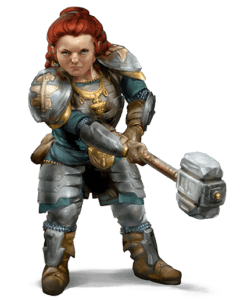
Dwarf
- All dwarves now have Dwarven Toughness which used to belong only to Hill Dwarves.
- Dwarves now have a trait called Forge Wise, which allows them to pick two tool proficiencies from a list of available toolkits.
- Dwarves Stonecunning no longer gives them the bonus when making History checks about stonework. Instead, now you can use a Bonus Action on your turn to gain Tremorsense with a range of 60 feet for ten minutes and you can use it a number of times equal to your proficiency bonus before needing to finish a long rest.
- Different dwarven lineages are spoken about in the playtest material, but as of now, dwarves get no extra traits or abilities for choosing a subrace.
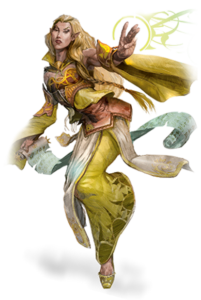
Elf
- Elves now choose from one of three Elven Lineages, Drow, High Elf, or Wood Elf. When you choose your lineage, you gain a benefit at 1st level and then learn a spell when you reach 3rd level and 5th level.
- Drow
- 1st Level: The range of your Darkvision increases to 120 feet. You also know the dancing lights cantrip.
- 3rd Level: faerie fire
- 5th Level: darkness
- High Elf
- 1st Level: You know the Prestidigitation cantrip. Whenever you finish a Long Rest, you can replace that cantrip with a different cantrip from the Arcane Spell List.
- 3rd Level: detect magic
- 5th Level: misty step
- Wood Elf
- 1st Level: Your Speed increases to 35 feet. You also know the druidcraft cantrip.
- 3rd Level: longstrider
- 5th Level: pass without trace
- Drow
- Elves Fey Ancestry trait still grans advantage on saving throws to avoid or end the charmed condition, but no longer offers the protection of being able to avoid being put to sleep by magic.
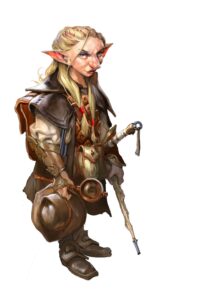
Gnome
- They still have Gnomish Cunning.
- You now choose one of only two gnomish lineages, forest gnome or rock gnome, which grant you two spells and one additional benefit.
- Forest Gnome: They know the minor illusion cantrip and can also cast speak with animals with this trait a number of times equal to your Proficiency Bonus.
- Rock Gnome: They know the mending and prestidigitation cantrips and can perform a 10-minute ritual while casting prestidigitation to create a small clockwork device with a single function similar to an effect you can create with that spell.
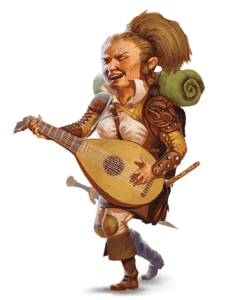
Halfling
- There are no Halfling subraces or lineages to choose from.
- They still have the Brave, Halfling Nimbleness, and Luck traits.
- They now have the Naturally Stealthy trait that used to be reserved solely for Lightfoot Halflings.
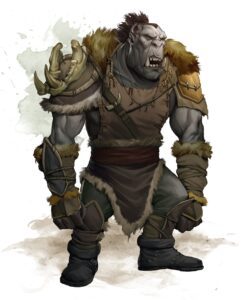
Orc
- Orcs are no longer presented as a half-race and use more of the full Orc traits from 5e.
- Adrenaline Rush allows Orcs to use the Dash Action as a Bonus Action and also gives you a number of Temporary Hit Points equal to your Proficiency Bonus.
- Orcs have the Powerful Build trait and also get the Relentless Endurance trait.
- Players no longer get the Menacing or Savage Attacks traits available in the Half-Orc player race.
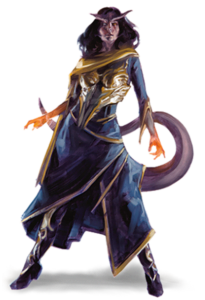
Tiefling
- They can be Medium or Small-sized creatures.
- Tieflings get to choose from one of three fiendish legacies, Abyssal, Chthonic, and Infernal, with each one granting you a benefit at 1st level as well as the ability to gain a spell at 3rd level and 5th level.
- Abyssal
- 1st Level: You have Resistance to poison damage. You also know the poison spray cantrip.
- 3rd Level: ray of sickness
- 5th Level: hold person
- Chthonic
- 1st Level: You have resistance to necrotic damage. You also know the chill touch cantrip.
- 3rd Level: false life
- 5th Level: ray of enfeeblement
- Infernal
- 1st level: You have resistance to fire damage. You also know the fire bolt cantrip.
- 3rd Level: hellish rebuke
- 5th Level: darkness
- Abyssal
- Each Tiefling has the Otherworldly Presence trait which allows them to know the thaumaturgy cantrip.
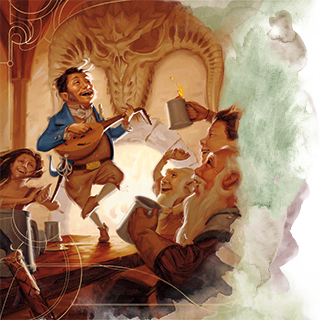
Character Backgrounds
Character backgrounds so a pretty heavy reworking in this material. These backgrounds are now what determines your Ability Score Improvements and instead of providing a unique Background Feature, each background gets a starting Feat. Unless of course, you don’t like the ASI a background comes with or the skill proficiencies it offers, you can just change them out for whatever you want, or just make your background from scratch.
Building Your Background
In the One D&D material that has been presented, you can go about choosing your character background in three different ways:
- Build a Background by using the rules in the “Build Your Background” section.
- This allows you to build any background you’d like, being able to pick and choose the individual traits and bonuses your character receives.
- Select a premade Background from the “Sample Backgrounds” section.
- This allows you to select one of the available character backgrounds and use the traits and bonuses associated with it as they are.
- Select a premade Background from the “Sample Backgrounds” section and then customize it with the rules in the “Build Your Background” section.
- This allows you to select one of the available character backgrounds and change any of the traits or bonuses it receives to anything you would like them to be.
When you decide to build your background, these are the individual features will get to determine for your character:
- Ability Scores
- When you determine your character’s ability scores, choose two of them, and increase one by 2 and the other one by 1. Alternatively, choose three ability scores, and increase each of them by 1.
- Skill Proficiencies
- Choose two Skills. Your character gains Proficiency in them.
- Tool Proficiency
- Choose one tool. Your character gains Tool Proficiency with it.
- Language
- Choose one language from the Standard Languages and Rare Languages tables. Your
character knows that language.
- Choose one language from the Standard Languages and Rare Languages tables. Your
- Feat
- Choose one 1st-level Feat. Your character gains that Feat.
- Equipment
- Your character gains 50 GP to spend on starting equipment. The character keeps any unspent GP as spare coin.
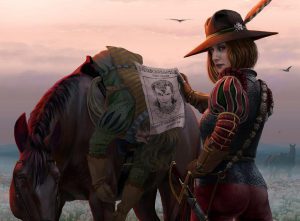
Sample Backgrounds
WotC provides a list of sample backgrounds including a lot of options from the PHB that have been updated for these new rules, as well as a few new ones. Here is a list of those backgrounds along with their ASI, Feat, and description:
Acolyte
- Ability Scores: +2 Wisdom, +1 Intelligence
- Feat: Magic Initiate (Divine)
- You devoted yourself to service in a temple, either nestled in a town or secluded in a sacred grove. There you performed hallowed rites in honor of a god or pantheon. You served under a priest and studied religion. Thanks to your priest’s instruction and your own devotion, you also learned how to channel a modicum of divine power in service to your place of worship and the people who prayed there.
Artisan
- Ability Scores: +2 Intelligence, +1 Charisma
- Feat: Crafter
- You began mopping floors and scrubbing counters in an artisan’s workshop for a few
coppers per day as soon as you were strong enough to carry a bucket. When you were
finally old enough to apprentice, you learned to create basic crafts of your own, as well as how to sweet-talk the occasional demanding customer. As part of your studies, you picked up Gnomish, the tongue from which so many of the artisan’s terms of art are derived.
Charlatan
- Ability Scores: +2 Charisma, +1 Dexterity
- Feat: Skilled
- Soon after you were old enough to order an ale, you already had a favorite stool in every tavern within ten miles of where you were born. As you traveled the circuit from public house to watering hole, you learned to prey on the unfortunates who were in the market for a comforting lie or two—perhaps a sham potion or a forged “treasure map.” You are fluent in Infernal, the ancient language of deception.
Criminal
- Ability Scores: +2 Dexterity, +1 Intelligence
- Feat: Alert
- You learned to earn your coin in dark alleyways, cutting purses, or burgling shops. Perhaps you were part of a small gang of like-minded wrongdoers, who looked out for each other. Or maybe you were a lone wolf, fending for yourself against the local thieves’ guild and older, more fearsome lawbreakers.
Cultist
- Ability Scores: +2 Intelligence, +1 Charisma
- Feat: Magic Initiate (Arcane)
- You scarcely recall what drove you into the service of the otherworldly being. Those
memories were blotted out long ago by recurrent dreams of midnight gatherings round
the obsidian pillar in the glade. By the light of each waning moon, the hierophants instructed you in the being’s creed and the rudiments of the arcane arts. When you came of age, you were ordered to blend in among the nonbelievers and await whatever mission the Great One has in store for you.
Entertainer
- Ability Scores: +2 Charisma, +1 Dexterity
- Feat: Musician
- You spent much of your youth following roving fairs and carnivals, performing odd jobs for musicians and acrobats in exchange for lessons. You may have learned how to walk a tightrope, how to double pick a lute, or how to recite Elvish poetry with the impeccable trills of an elf poet. To this day, you thrive on applause and long for the stage.
Farmer
- Ability Scores: +2 Constitution, +1 Wisdom
- Feat: Tough
- You grew up close to the land. Years of tending animals and cultivating the earth rewarded you with patience and good health. You have a keen appreciation for nature’s bounty alongside healthy respect for nature’s wrath. Like many farmers, you made frequent use of the agricultural almanacs produced by the greatest halfling farmers.
Gladiator
- Ability Scores: +2 Strength, +1 Charisma
- Feat: Savage Attacker
- Your first few appearances in the gladiatorial pits led you to appreciate every one of the scars you carry from your instructors and sparring partners. Each scar was a lesson that taught you how to best your opponents and curry favor with the crowds your brawls entertained. Your time in the pits left you with a strong hand and a strong heart. You’ll forever share a remarkable bond with the other pit fighters in your stable—humans, dragonborn, dwarves, and orcs—hardened warriors all.
Guard
- Ability Scores: +2 Strength, +1 Wisdom
- Feat: Alert
- Your feet begin to ache when you remember the countless hours you spent at your post in the tower. You were trained to keep one eye outside the wall, watching for marauders
sweeping from the nearby forest, and your other eye inside the wall, searching for cutpurses and troublemakers. At the end of each shift, you bunked in the mayor’s barracks alongside your fellow sentries and the dwarven smiths who kept your armor snug and your weapons sharp.
Guide
- Ability Scores: +2 Wisdom, +1 Dexterity
- Feat: Magic Initiate (Primal)
- You came of age in the outdoors, far from settled lands. Your home? Anywhere you chose to unfurl your bedroll. There are wonders on the frontier—strange monsters, pristine forests and streams, overgrown ruins of great halls once trod by giants—and you learned to fend for yourself as you explored them. From time to time, you traveled with a pair of friendly druids who were kind enough to instruct you in the fundamentals of channeling the magic of the wild.
Hermit
- Ability Scores: +2 Wisdom, +1 Constitution
- Feat: Magic Initiate (Primal)
- You spent your early years secluded in a hut or monastery located well beyond the outskirts of the nearest settlement. In those days, your only companions were the creatures of the forest, who would occasionally visit to bring news of the outside world and supplies. The quiet and solitude you found in your time outside society allowed you to spend many hours pondering the mysteries of creation, attuning your mind to the magical energy flowing through the natural world.
Laborer
- Ability Scores: +2 Constitution, +1 Strength
- Feat: Tough
- Your apprenticeship consumed the better part of your youth. First, you learned to cut and polish a stone. After several years of polishing stones, you learned how to cement those stones into a wall. After several years of building walls, you learned to join your walls to form a structure. The structures you built were exceptionally durable. The masons who taught you were taught by even older masons who were taught by dwarf artisans of old.
Noble
- Ability Scores: +2 Charisma, +1 Intelligence
- Feat: Skilled
- You were raised in a castle as a creature of wealth, power, and privilege—none of it earned. Your family is minor aristocrats who saw to it that you received a first-class education, some of which you appreciated and some of which you resented. (Was it truly necessary to read all those ancient histories in their original Draconic?) Your time in the castle, especially the many hours you spent observing your family at court, also taught you a great deal about leadership.
Pilgrim
- Ability Scores: +2 Wisdom, +1 Constitution
- Feat: Healer
- You and a group of like-minded believers— mostly humans and halflings—once endeavored to walk a thousand miles of road to reach a faraway shrine. Priests counseled at the outset that, long after your journey was complete, you’d come to realize that you found the key to your salvation not at your destination, but somewhere along the road that led there.
Sage
- Ability Scores: +2 Intelligence, +1 Wisdom
- Feat: Magic Initiate (Arcane)
- You spent your formative years traveling between manors and monasteries, performing
various odd jobs and services in exchange for access to their libraries. You wiled away many a long evening with your nose buried in books and scrolls, learning the lore of the multiverse— even the rudiments of magic—and your mind only yearns for more.
Sailor
- Ability Scores: +2 Dexterity, +1 Wisdom
- Feat: Tavern Brawler
- Thus far, you’ve spent most of your days living the life of a seafarer, wind at your back and decks swaying beneath your feet, as you sailed toward your next adventure. You’ve perched on barstools in more ports of call than you can remember, faced down mighty storms, and swapped stories with the folk who live beneath the waves.
Soldier
- Ability Scores: +2 Strength, +1 Constitution
- Feat: Savage Attacker
- You began training for war at such an early age that you carry only a precious few memories of what life was like before you took up arms. Battle is in your blood. Sometimes you catch yourself reflexively performing the basic fighting exercises you learned as a youth. Eventually, you put that training to use on the battlefield, protecting the realm by waging war and studying the strategies of goblinoid generals.
Urchin
- Ability Scores: +2 Dexterity, +1 Wisdom
- Feat: Lucky
- You grew up on the streets, surrounded by similarly ill-fated castoffs, a few of them friends and a few of them rivals. You slept where you could and did odd jobs for food. At times, when the hunger became unbearable, you resorted to theft. Still, you never lost your pride and never abandoned hope. Fate is not yet finished with you.
Languages
There isn’t much new information to be found in the section about languages. All of the usual languages are there for both the standard and rare language lists. There are only two things to mention about the new starting languages rules:
- Each character will start knowing at least three languages.
- You get these languages because you start the game knowing Common, you are provided a language from your background, and you get to choose a language from the standard or rare language lists to start with.
- Common Sign Language has been added to the list of standard languages.
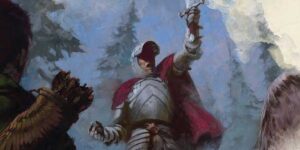
Feats
Feats work pretty much the same way that they currently do, but now each character gets to start with a feat at 1st level due to the new background rules. They have also added a bit more definition to Feats by adding the following three elements to them:
- Level
- Each Feat has a level. To take a Feat, your level must equal or exceed the Feat’s level.
- Prerequisite
- You must meet any prerequisite specified in a Feat to take that Feat. If you lose a Feat’s prerequisite, you can’t use that Feat until you regain the prerequisite.
- Repeatable
- If a Feat is repeatable, you can take it more than once. If it isn’t repeatable, you can take the Feat only once.
All of the Feats available in the One D&D playtest material are 1st-level Feats so they have no prerequisites and each of them was featured in at least one of the sample backgrounds. Some of the Feats on this list are new but most of them have been updated from Feats found in the Player’s Handbook:
Alert
Repeatable: No
Always on the lookout for danger, you gain the following benefits:
- Initiative Proficiency. When you roll Initiative, you can add your Proficiency Bonus to the roll.
- Initiative Swap. Immediately after you roll Initiative, you can swap your Initiative with the Initiative of one willing ally in the same combat. You can’t make this swap if you or the ally is Incapacitated.
Crafter
Repeatable: No
You are adept at crafting things and bargaining with merchants, granting you the following
benefits:
- Tool Proficiency. You gain Tool Proficiency with three different Artisan Tools of your
choice. - Discount. Whenever you buy a nonmagical item, you receive a 20 percent discount on it.
- Faster Crafting. When you craft an item using a tool with which you have Tool Proficiency, the required crafting time is reduced by 20 percent.
Healer
Repeatable: No
You have the training and intuition to administer first aid and other care effectively, granting you the following benefits:
- Battle Medic. If you have a Healer’s Kit, you can expend one use of it and tend to a creature within 5 feet of you as an Action. That creature can expend one of its Hit Dice, and you then roll that die. The creature regains a number of Hit Points equal to the roll plus your Proficiency Bonus.
- Healing Rerolls. Whenever you roll a die to determine the number of Hit Points you
restore with a spell or with this feat’s Battle Medic benefit, you can reroll the die if it rolls
a 1, and you must use the new roll.
Lucky
Repeatable: No
You have inexplicable luck that can kick in at just the right moment, granting you the following benefits:
- Luck Points. You have a number of Luck Points equal to your Proficiency Bonus. You can spend the points on the benefits below, and you regain your expended Luck Points when you finish a Long Rest.
- Advantage. Immediately after you roll a d20 for a d20 Test, you can spend 1 Luck Point to give yourself Advantage on the roll.
- Disadvantage. When a creature rolls a d20 for an attack roll against you, you can spend 1 Luck Point to impose Disadvantage on that roll.
Magic Initiate
Repeatable: Yes, but you must choose a different Spell list each time
You have learned the basics of a particular magical tradition. Choose one Spell list: Arcane, Divine, or Primal. You gain the following benefits related to that choice:
- Two Cantrips. You learn two cantrips of your choice from the Spell list.
- 1st-Level Spell. Choose one 1st-level Spell from the Spell list. You always have that Spell prepared. You can cast it once without a Spell Slot, and you regain the ability to cast it in that way when you finish a Long Rest. You can also cast the Spell using any Spell Slots you have.
- Intelligence, Wisdom, or Charisma is your spellcasting ability for these Spells (choose when you select this Feat). Consult the Player’s Handbook for the rules on spellcasting.
- Whenever you gain a new level, you can replace one of the Spells you chose for this Feat with a different Spell of the same level from the chosen Spell list.
Musician
Repeatable: No
You are a practiced musician, granting you the following benefits:
- Instrument Training. You gain Tool Proficiency with three Musical Instruments of your choice.
- Inspiring Song. As you finish a Short Rest or a Long Rest, you can play a song on a Musical Instrument with which you have Tool Proficiency and give Inspiration to allies who hear the song. The number of allies you can affect in this way equals your Proficiency Bonus.
Savage Attacker
Repeatable: No
- You have trained to deal particularly damaging strikes. When you take the Attack Action and hit a target with a Weapon as part of that Action, you can roll the Weapon’s damage dice twice and use either roll against the target. You can use this benefit only once per turn.
Skilled
Repeatable: Yes
- You have exceptionally broad learning. Choose three Skills in which you lack Proficiency. You gain Proficiency in those Skills.
Tavern Brawler
Repeatable: No
Accustomed to brawling, you gain the following benefits:
- Enhanced Unarmed Strike. When you hit with your Unarmed Strike* and deal damage, you can deal Bludgeoning Damage equal to 1d4 + your Strength modifier, instead of the normal damage of an Unarmed Strike.
- Damage Rerolls. Whenever you roll a damage die for your Unarmed Strike, you can reroll the die if it rolls a 1, and you must use the new roll.
- Shove. When you hit a creature with an Unarmed Strike as part of the Attack Action
on your turn, you can damage the target and push it 5 feet away. You can
use this benefit only once per turn. Furniture as Weapons. You can wield furniture as a Weapon, using the rules of the Greatclub for Small or Medium furniture and the rules of the Club for Tiny furniture.
Tough
Repeatable: No
- Your Hit Point Maximum increases by an amount equal to twice your character level when you gain this Feat. Whenever you gain a level thereafter, your Hit Point Maximum increases by an additional 2 Hit Points.
Rules
The final section of the One D&D playtest material document is the Rules Glossary. In this section, they go over the updated rules and definitions for several different aspects of the game. Some of the rules make sense, some don’t, and others are the original rules just worded differently and feel like they didn’t need to be mentioned. Let’s go over the bullet points for the rule changes that are worth mentioning:
Arcane, Divine, & Primal Spells
There are now three defined types of spellcasting:
- Arcane. Arcane spells are used by Artificers, Bards, Sorcerers, Warlocks, and Wizards.
- Divine. Divine spells are used by Clerics and Paladins.
- Primal. Primal spells are used by Druids and Rangers.
Artisan’s Tools
- All Artisan’s Tools in the Player’s Handbook now cost 15 GP each.
D20 Tests
- They have decided to define any ability check, attack roll, or saving throw as a D20 Test, and anything that affects a D20 Test affects all three of them.
- If you roll a 1 on any D20 Test it automatically fails.
- If you roll a 20 on any D20 Test it automatically succeeds and the player also gains Inspiration.
- If you roll a 20 on an attack roll you follow the Critical Hit rules as normal.
Gaming Sets
- All Gaming Sets in the Player’s Handbook now cost 1 GP each.
Grappled (Condition)
- Your speed is still reduced to 0.
- You now have disadvantage on attack rolls against any target that isn’t grappling you.
- The grappler can still drag or carry you but suffer the Slowed condition while they do so.
- While you are grappled it no longer takes an Action to try to end the grapple. Instead, at the end of each of your turns, you may make a Dexterity or Strength saving throw against the grapples escape DC, ending the grapple on a successful save.
Incapacitated (Condition)
- Pretty much the same rules as usual, except it is stated that if you are Incapacitated when you roll Initiative, you have disadvantage on the roll, which makes sense.
Inspiration
- In addition to being given Inspiration anytime you roll a 20 on a D20 Test, the dungeon master can still award anytime they see fit.
- If you already have Inspiration and would gain another instance of it, you may choose to give it to someone else in your party that doesn’t already have it.
- If you have Inspiration when you start a long rest, you lose it.
Musical Instruments
- All Musical Instruments in the Player’s Handbook now cost 20 GP each.
Slowed (Condition)
- You must spend 1 extra foot of movement for every foot you move using your speed.
- Attack rolls against you have advantage.
- You have disadvantage on Dexterity saving throws.
Tool Proficiency
- If you have proficiency with a tool, you can add your Proficiency Bonus to any ability check you make that uses that tool. If you have proficiency in the skill that’s also used with that check, you have advantage on the check too.
Unarmed Strike
On a hit, your Unarmed Strike causes one of the following effects of your choice:
- Damage. The target takes Bludgeoning Damage equal to 1 + your Strength modifier.
- Grapple. The target is Grappled, and the grapple’s escape DC equals 8 + your Strength
modifier + your Proficiency Bonus. This grapple is possible only if the target is no more than one size larger than you and if you have a hand free to grab the target. - Shove. You either push the target 5 feet away or knock the target Prone. This shove is possible only if the target is no more than one size larger than you.

Summary
The first D&D One playtest document shakes up the fundamentals of what it means to build a Dungeons & Dragons character. I do like that the Ability Score Improvements have been attached to your background. I have been advocating for that for a while now. I don’t feel great about the rest though. Here’s my bullet point summary:
- Making the character races more uniform has made them feel extremely boring to me due to less diversity with a lack of subraces and interesting abilities.
- Backgrounds get a bit closer to doing the right thing by providing your ability scores, but I’m still not sure how I feel about getting a feat at 1st level instead of a unique Background Feature.
- I am happy to see the addition of Common Sign Language to the list of standard languages, that’s one more step towards being more inclusive.
- There are several new Feats but some of them are old ones. A lot of them didn’t change much but a few of them changed completely, mainly Alert and Healer, and they didn’t change for the better.
- I don’t like how much these new rules are trying to award Inspiration to players for different things, it seems like they are trying to force people into using the mechanic more.
- I’m not a fan of taking away contested checks from the grappling rules, I choose the thrill of rolling dice off against someone instead of just trying to beat a DC any day.
- The Slowed condition could be useful in saving text for the explanations of some spells and other effects.
- Changing the prices of Artisan’s Tools, Gaming Sets, and Musical Instruments is boring and lazy.
This is just the first peek at what Wizards of the Coast has in store for One D&D. We will be seeing many more changes to other aspects of the game monthly moving ahead. Needless to say, A lot of the stuff we’ve seen in this document may end up changing. You can help them make it better by filling out the playtest surveys that come out about one month after the content releases. If you want to check out all of the details in Character Origins Unearthed Arcana or fill out the survey when it’s available, just click here!

